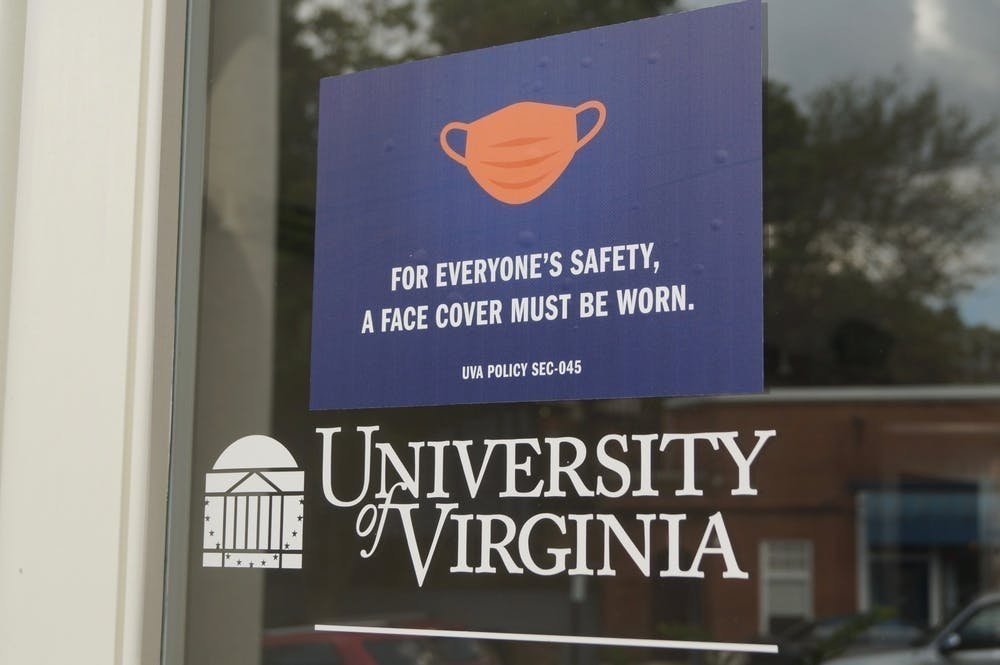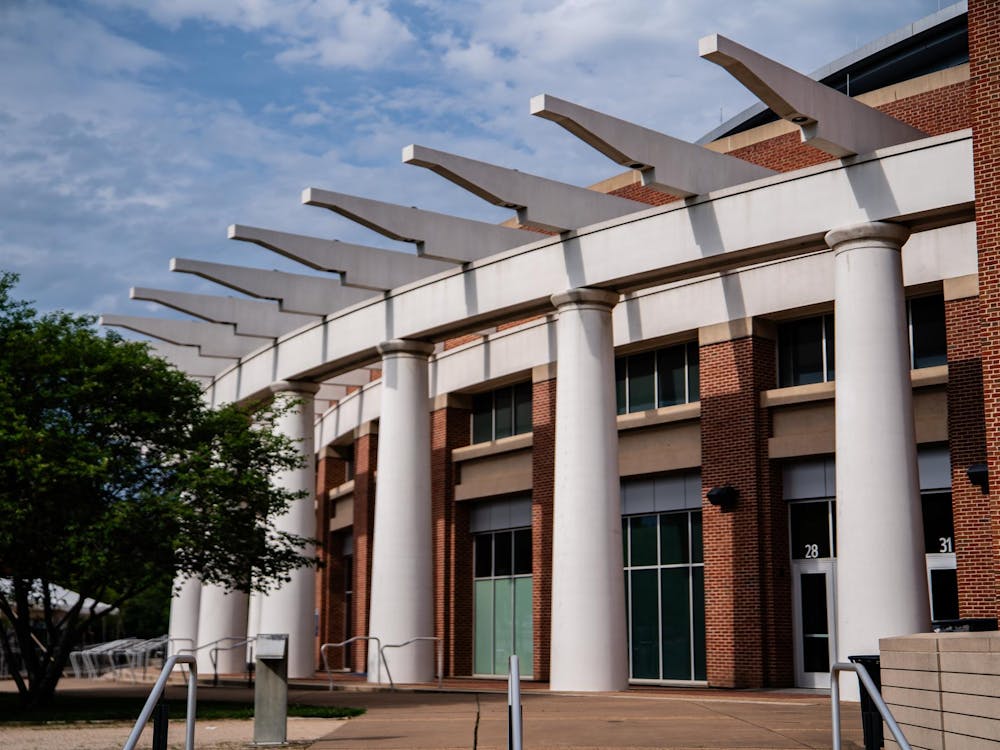Student Council held a town hall virtually this Thursday to provide a space for students, faculty and community members to share reactions and — for some — complaints to the University’s public health guidelines and plans for the spring semester. More than 30 individuals attended the event and participants voiced opinions on a number of issues, from a lack of academic accommodations to inadequate support for resident advisors.
With the emergence of the omicron variant in late November, University leadership prohibited food and beverages at events until Feb. 4, allowed faculty with extenuating health circumstances to request a remote start to their classes and required booster shots for all students, faculty and staff by Jan. 14. The faculty and staff requirement was recently rescinded following an executive order by Gov. Glenn Youngkin Jan. 15. Students and organizations — including Young Democratic Socialists of America at U.Va., Political Latinxs United for Movement and Action in Society, the Cultural Organization for Latin Americans, the Organization for African Students and the Black Student Alliance — have already voiced concerns about these protocols.
Gabriela Hernandez, chair of the representative body and third-year College student, welcomed participants and opened the meeting by explaining Student Council’s recent meetings with administration and Inter-Sorority Council and Inter-Fraternity Council leadership urging Greek life to move recruitment events online due to rising caseloads.
Hernandez also said Student Council also asked the administration to return to mandatory prevalence testing and provide more academic accommodations, including note-taking services for isolated and immunocompromised students. Student Council was denied by administration on both counts, stating for the latter it would be difficult to expand the definition of a disability under Student Disability Access Center guidelines to include temporarily sick individuals.
Due to the omicron variant’s high virality, proper masks and the ability to isolate when infected are important to slowing the virus’s spread. Representatives of Student Council confirmed these parameters would be met, stating staff members will receive high-quality masks such as KN95s and that hundreds of isolation beds remain available.
“We’ve also advocated for additional masks for resident advisors, who were only given one KN95 each, and we feel hopeful that we’ll be able to secure additional masks,” Hernandez said. “In regards to quarantine housing, we’ve confirmed that the University has a supply of hundreds of isolation beds. However, this supply is apparently not expanded with particular ease, which is why the University issued the request for students to isolate at home if possible.”
Sarandon Elliot, director of U.Va. Mutual Aid and fourth-year College student, highlighted the organization’s success in raising $1,300 in funding to distribute 1,450 KN95 masks to both students and workers, as well as maintaining support for textbook access for low-income and first-generation students. Mutual Aid continues to fundraise for the creation of a free store and no-strings-attached grants.
“In U.Va. Mutual Aid, our belief is that we work in solidarity, not charity, and that’s what we ground our work in, and that’s why we try to provide radical community care here at the University for a more equitable university,” Elliot said.
After the presentation, fourth-year Education student Ariana Gueranmayeh was the first to speak, expressing her disappointment in the lack of prevalence testing. While testing is available by appointment in the basement of Newcomb Hall and in the Employee Health building, Gueranmayeh voiced a desire for the University to test at outdoor locations to prevent further spread of the virus. Others have expressed discontent with the University’s lack of weekend testing, which is difficult for students without a car or reliable transportation to access.
“I’m feeling disappointed in U.Va., this semester especially,” Guernanmayeh said. “I’ve seen what U.Va. is capable of doing last spring with mandatory testing and seeing how easy and accessible it was for everyone to fit it in between classes.”
Sociology Prof. Rose Bucklew said she started her classes online thanks to the provost’s option for remote classes for professors with health-related circumstances. However, Bucklew remains worried about returning to in-person instruction with an unvaccinated child at home, noting that despite some students’ calls for hybrid class options, most professors lack the institutional support and training to provide high-quality hybrid learning.
Bucklew said there should be better communication and understanding between students and faculty because cooperation between the two would help prevent administrative steamrolling. With a united front, Bucklew said, students and faculty could better ensure administration makes decisions that prioritize health and safety.
“When students get pitted against faculty, administration wins,” Bucklew said.
Instead of online options, Bucklew suggested alternative note-taking methods so professors can provide extra credit to students who post notes for sick or immunocompromised classmates.
Assistant Sociology Prof. Ian Mullen then spoke on the lack of guidance for faculty members. While Magill sent an email to the University community Jan. 19 providing a guide for instructors on accommodating students who can’t attend class, Mullen said instructions have been less clear than last year.
Mullen added that faculty were encouraged to accommodate students, but were not provided with specific and consistent guidelines for classes. Because of this lack of open communication, faculty members varied greatly in their approaches, with some of his colleagues still strictly requiring attendance.
“I feel there has to be a way for students and faculty to have more direct communication so that we can find more workable solutions, so that the faculty can effectively conduct a class in a way that meets educational goals and protects students’ well being.” Mullen said.
Fourth-year College student Mihret Niguse closed the public comment section by speaking to the effects of the University’s ban on food at student organizations’ events. As the president of a cultural organization, Niguse said the ban interferes with the group’s plans for a winter fundraising event.
“Food might seem like a simple thing, but when you’re a cultural organization, food is very central to who we are,” Niguse said. “It’s been hard to navigate how to still get together and be able to share our cultural events within this guideline.”
Niguse said that while she understands the University’s reasoning, she is hopeful for a change in policy. The ban on eating at group events is set to expire Feb. 4, and the University continues to reevaluate other COVID-19 protocols.
Hernandez ended the meeting by thanking participants for their thoughts and inviting participants to remain afterwards to share any final concerns with the executive board.
Student Council holds weekly meetings every Tuesday at 6:30 p.m. on Zoom, which can be accessed through its website.
This article has been updated to reflect that CAFE, BSA, OAS and COLA have voiced concerns with the University's public health guidelines for this semester.







